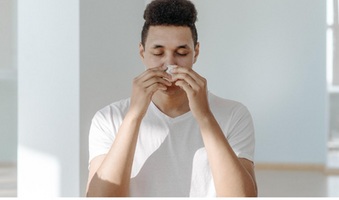
Guest post by Roger V Schmitt Image by Pexels
Self-care is a practice that has been around for centuries. It’s a way to take care of yourself and your mental health by practicing self-compassion, spending time on self-fulfillment, and taking care of your physical body.
Self-care can be anything from taking time for yourself, telling yourself that you are doing a great job, or even something as simple as taking a walk in nature. It is important to remember that self-care does not have to be complicated or expensive. You can do it anywhere and at any time.
A New But Ancient Way of Looking at Self-Care
Ayurveda Living is the go-to web destination for those seeking comprehensive health and wellness information for themselves and their loved ones through the principles of Ayurveda and Yoga. The fundamental principles of Ayurveda hinge on the idea of combining the Vedic philosophies and traditional medicines that offer a different way of healthy living that are different from the generally accepted principles of conventional modern science.
Caring for Your Home Is Self-Care, Too
Your home can be a place to unwind and leave the stresses of the day behind, but only if your home is a stress-free place to be. The best way to begin to make it more relaxing is to get rid of any clutter that has begun to accumulate. Next, introduce plants. Live plants are nice to look at and help cleanse the air of impurities and give off oxygen. Opening the blinds and drapes to allow more natural light in is a great mood booster. And when you clean, try using all-natural products to cut back on the number of toxins in your air.
Caring About What You Eat
Consuming too much sodium, which is found in most processed foods as well as fast food or restaurant meals, can have a devastating effect not only on our long-term health by way of increased risk for stroke, heart disease, and high blood pressure, but it makes us bloated, thirsty and interrupts our sleep.
Sugar is problematic for both our long-and short-term well-being too. Sweets can give us a little rush when we feel like we need a boost, but the crash afterward can drop your blood sugar and make you even more tired than when you started. Plus, the long-term effects of diabetes and obesity make cutting back on sweets an important part of self-care.
Professional Mental Health Care
Seeking out mental health counseling can be one of the smartest self-care choices you can make. A qualified therapist can guide you into an improved sense of self and teach you healthy practices you can use every day to avoid stress triggers. A counselor can also help you develop the necessary tools to manage your emotions and feelings and create coping mechanisms that are healthy and productive. Online therapy is a great alternative if office visits are a turn-off or not ideal for your schedule. And with online platforms dedicated to telehealth, you can easily connect with a licensed therapist, often with same-day appointments, and you can find that many therapists are available online. Telehealth platforms typically accept most insurance, making copays more affordable, though even out-of-pocket costs are manageable.
Sleep, It’s More Important Than You Think
It is estimated that more than a third of the world’s population suffers from chronic sleep deprivation. The effects of this range from feeling tired and irritable to being unable to concentrate, with potential long-term health risks.
The National Sleep Foundation has found that less than 7 hours of sleep per night can lead to weight gain, heart disease, stroke, diabetes, and depression. Sleep deprivation also increases your risk for accidents and injuries.
The first step in getting a better night's sleep is to establish a bedtime routine. A bedtime routine can be anything from reading, taking a bath, stretching, or listening to music before going to bed. Whatever it may be, it should help you relax and prepare for sleep. You should avoid caffeine after noon time. Caffeine can stay in your system for up to 10 hours! So if you drink coffee at 3 pm, it will still be affecting your ability to fall asleep at 11 pm. Keep your room to between 65 and 68 degrees since that is the ideal temperature for a good night's sleep.
Self-care, in whatever form we choose, should become a normal part of everyone’s life to improve our overall sense of well-being and happiness.
Note: The information in this article is intended for your educational use only and is not a substitute for professional medical advice, diagnosis, or treatment. Always seek the advice of your physician or other qualified health providers with any questions you may have regarding a medical condition and before undertaking any diet, supplement, fitness, or other health programs.





